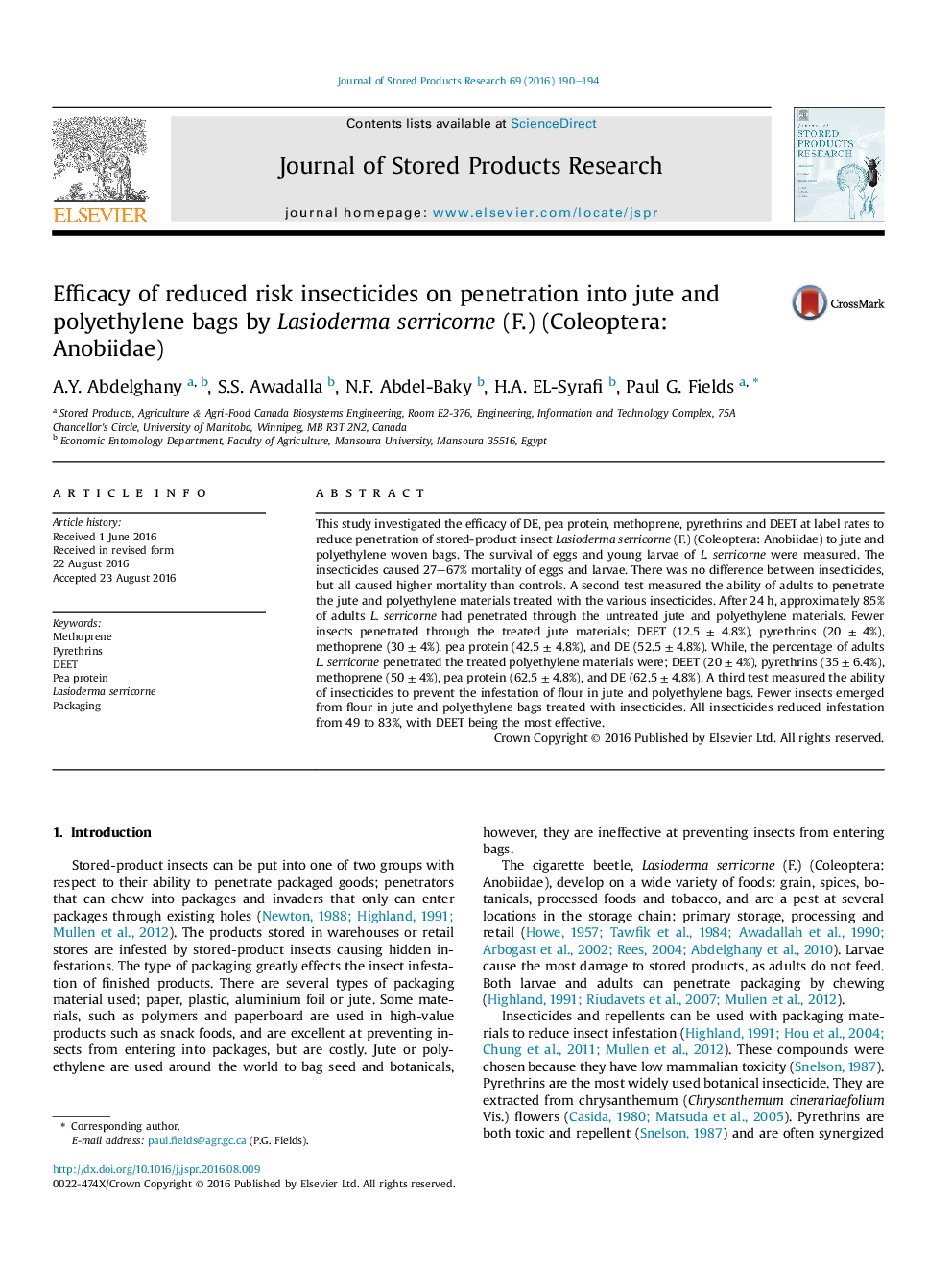| Article ID | Journal | Published Year | Pages | File Type |
|---|---|---|---|---|
| 6378345 | Journal of Stored Products Research | 2016 | 5 Pages |
Abstract
This study investigated the efficacy of DE, pea protein, methoprene, pyrethrins and DEET at label rates to reduce penetration of stored-product insect Lasioderma serricorne (F.) (Coleoptera: Anobiidae) to jute and polyethylene woven bags. The survival of eggs and young larvae of L. serricorne were measured. The insecticides caused 27-67% mortality of eggs and larvae. There was no difference between insecticides, but all caused higher mortality than controls. A second test measured the ability of adults to penetrate the jute and polyethylene materials treated with the various insecticides. After 24 h, approximately 85% of adults L. serricorne had penetrated through the untreated jute and polyethylene materials. Fewer insects penetrated through the treated jute materials; DEET (12.5 ± 4.8%), pyrethrins (20 ± 4%), methoprene (30 ± 4%), pea protein (42.5 ± 4.8%), and DE (52.5 ± 4.8%). While, the percentage of adults L. serricorne penetrated the treated polyethylene materials were; DEET (20 ± 4%), pyrethrins (35 ± 6.4%), methoprene (50 ± 4%), pea protein (62.5 ± 4.8%), and DE (62.5 ± 4.8%). A third test measured the ability of insecticides to prevent the infestation of flour in jute and polyethylene bags. Fewer insects emerged from flour in jute and polyethylene bags treated with insecticides. All insecticides reduced infestation from 49 to 83%, with DEET being the most effective.
Related Topics
Life Sciences
Agricultural and Biological Sciences
Agronomy and Crop Science
Authors
A.Y. Abdelghany, S.S. Awadalla, N.F. Abdel-Baky, H.A. EL-Syrafi, Paul G. Fields,
